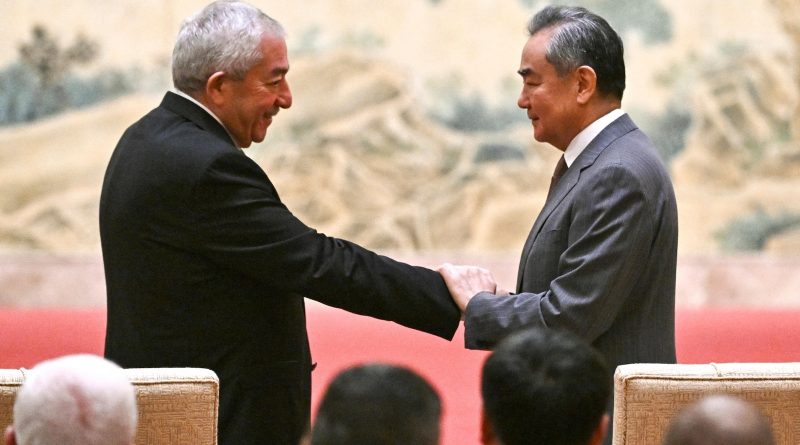Hamas and Fatah Sign Beijing Declaration to End Rift and Unite Palestinian Leadership
Palestinian factions Hamas and Fatah have signed a declaration in Beijing to end their long-standing rift, according to Chinese state media. The Beijing Declaration on “ending division and strengthening Palestinian unity” marks a significant step towards unifying the factions, which have been at odds for years. This agreement includes a pledge to form a unity government for the Palestinian territories.
Historical Context and Challenges: Previous efforts at reconciliation, including a similar deal in 2011, have failed. This new declaration comes amid a 10-month-long war in Gaza and ongoing peace talks involving Israel and Hamas, complicating the prospects for political unity. Hamas has expressed a desire for a government of technocrats agreed upon by various factions, which would pave the way for elections in Gaza and the West Bank. However, both Israel and the Palestinian Authority (PA) remain skeptical of Hamas’s intentions.
Reactions and Diplomatic Moves: Israel’s Foreign Minister, Israel Katz, swiftly dismissed the agreement, asserting that joint governance between Hamas and Fatah in Gaza would not happen under Hamas’s rule. The talks in Beijing, hosted by Chinese Foreign Minister Wang Yi, included representatives from 12 other political factions, highlighting China’s growing diplomatic influence in the Middle East.
Future Prospects and Uncertainties: The joint statement released after the Beijing talks did not specify a timeline for forming the unity government, stating only that it would be done by agreement among the factions. The agreement also reiterated a commitment to creating a Palestinian state on lands captured by Israel in the 1967 Mideast war. While Hamas and Fatah have agreed on the pre-1967 borders, their stances on Israel differ significantly. Hamas refuses to officially recognize Israel, whereas the Fatah-led PA abides by interim peace agreements from the early 1990s.
Expert Opinions: Hani Al-Masry, an expert on Palestinian reconciliation, expressed cautious optimism about the agreement but noted the lack of a specific implementation timeline. Previous attempts at unification have been derailed by internal rivalries and external pressures, including the West’s refusal to accept any government that includes Hamas without its recognition of Israel.
Implications for Gaza and the PA: The Biden administration envisions a reformed Palestinian Authority governing postwar Gaza, a proposal rejected by Israel without offering an alternative. The Palestinian Islamic Jihad, allied with Hamas, also opposes any agreement that implicitly or explicitly recognizes Israel and has called for the withdrawal of the Palestine Liberation Organization’s recognition of Israel.
Conclusion: The Beijing Declaration represents a potential breakthrough in Palestinian unity but faces significant obstacles. The success of this agreement depends on overcoming deep-seated rivalries and gaining broader international acceptance. As the situation evolves, the path to a unified Palestinian government remains uncertain.

